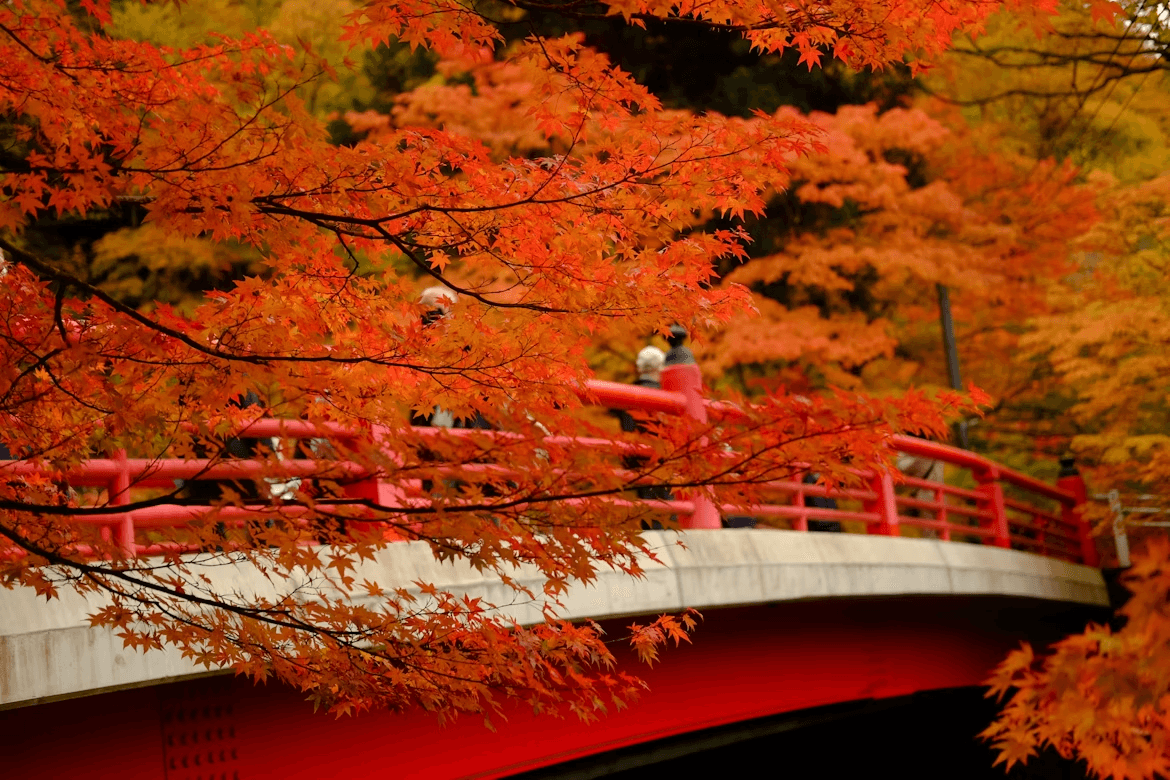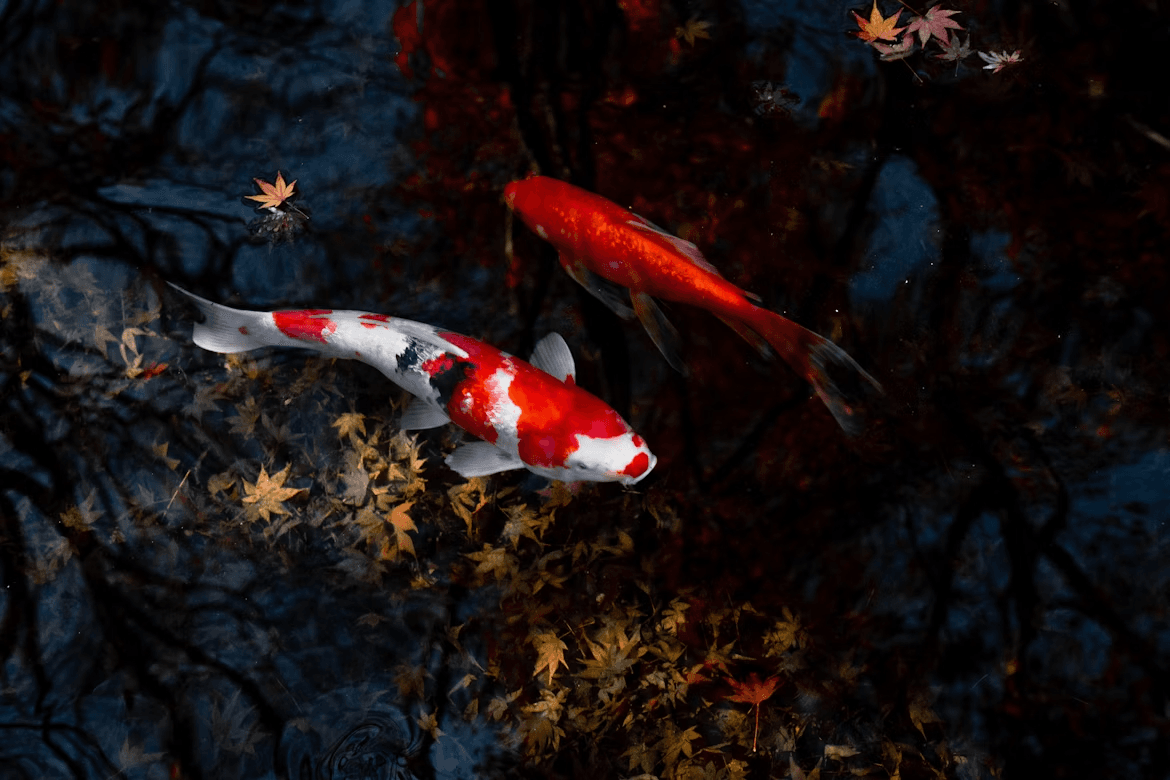10 Inspirational Japanese Quotes
Last updated: October 28, 2025

If you read our article sharing 20 cool Japanese words, you already know that there’s something deeply poetic about the way the Japanese language expresses life. In just a few words, a phrase can hold an entire philosophy—a lifetime of resilience, gratitude, impermanence, or quiet beauty.
These sayings are more than linguistic curiosities; they are windows into how Japan sees the world — how it balances the self with society, and still finds elegance in the simplest of moments.
Below, we explore ten meaningful Japanese quotes and proverbs that continue to inspire people across generations. Some will motivate you to keep going, others to slow down and look around. Together, they reveal a way of thinking that is grounded, humble, and quietly profound.
10 famous Japanese proverbs and quotes
- 七転び八起き (Nanakorobi yaoki)
- 石の上にも三年 (Ishi no ue ni mo sannen)
- 光陰矢の如し (Koin ya no gotoshi)
- 継続は力なり (Keizoku wa chikara nari)
- 人を信じよ、しかし、その百倍も自らを信じよ (Hito wo shinjiyo, shikashi, sono hyakubai mo mizukara wo shinjiyo)
- 割れたものを抱いて生きよ (Wareta mono wo daite ikiyo)
- 出る釘は打たれる (Deru kugi wa utareru)
- 花より団子 (Hana yori dango)
- 魚心あれば水心 (Uogokoro areba mizugokoro)
- 負けるが勝ち (Makeru ga kachi)
1. 七転び八起き (Nanakorobi ya-oki)

Fall down seven times, get up eight.
This proverb speaks to the unbreakable spirit of persistence—the idea that resilience is not measured by how rarely we fall, but by how often we rise again. It’s a reminder that progress is rarely smooth, and that setbacks are not failures but stepping stones.
In Japan, this phrase is often used to encourage perseverance through studies, work, or life’s unexpected struggles. It embodies a kind of stoic optimism—an unshakable belief that no matter what happens, you can always begin again.
2. 石の上にも三年 (Ishi no ue ni mo sannen)
Even on a cold stone, sit for three years.
The image is simple yet profound—if you stay put long enough, even the hardest and coldest stone will eventually warm beneath you. The saying celebrates endurance and patience, especially when beginnings are uncomfortable or fruitless.
It’s a cultural nod to the long game: success, skill, or understanding doesn’t appear quickly. It takes time, trust, and quiet perseverance—values that have shaped Japanese craftsmanship, education, and relationships for centuries.
3. 光陰矢の如し (Koin ya no gotoshi)

Time flies like an arrow.
This ancient saying captures the fleeting nature of life, and how swiftly the present slips into the past. It encourages mindfulness and the appreciation of small moments before they fade.
In Japanese thought, awareness of impermanence (無常, mujo) is not a source of despair but of beauty; it reminds us to live consciously, to hold gratitude for every transient second. Hearing “Koin ya no gotoshi” is both a warning and a gift: don’t wait too long to start living the way you want to.
4. 継続は力なり (Keizoku wa chikara nari)
Consistency is power.
The essence of this phrase lies in the belief that greatness is built, not born. Small, steady actions—a page a day, a word a day, a single practice—accumulate into lasting strength. It’s a mindset that values discipline over talent, patience over bursts of inspiration.
Japanese students often hear this phrase from teachers and coaches alike, a gentle but firm reminder that even slow progress is progress. In a world obsessed with quick results, “Keizoku wa chikara nari” whispers a quieter truth: persistence outlasts perfection.
5. 人を信じよ、しかし、その百倍も自らを信じよ (Hito wo shinjiyo, shikashi, sono hyakubai mo mizukara wo shinjiyo)

Believe in others, but believe in yourself a hundred times more.
This quote balances two virtues that the Japanese value deeply: trust and humility. It teaches that while relationships and collaboration matter, true direction must come from within.
Believing in oneself does not mean arrogance—it means holding confidence quietly, with inner strength and calm conviction. In moments of doubt, this phrase serves as a compass, pointing inward toward self-trust as the foundation for meaningful connection with others.
6. 割れたものを抱いて生きよ (Wareta mono wo daite ikiyo)
Live while embracing what is broken.
This poetic phrase embodies the Japanese aesthetic of wabi-sabi—finding beauty in imperfection and incompleteness. It suggests that rather than hiding our cracks or past wounds, we can hold them with gentleness and pride. Life’s fractures do not diminish us; they make us more human.
Just as the art of 金継ぎ (kintsugi) repairs pottery with gold, “Wareta mono wo daite ikiyo” invites us to live openly with our flaws, transforming what was once broken into something more precious than before.
7. 出る釘は打たれる (Deru kugi wa utareru)

The nail that sticks out gets hammered down.
This proverb reflects Japan’s deep awareness of harmony and conformity—an acknowledgment that standing out too boldly can invite resistance. Yet, beneath its surface lies an interesting tension. While it cautions against excessive individuality, it also reveals the delicate balance every culture faces between personal expression and social belonging.
Many Japanese people cite this proverb with a wry smile, aware that sometimes the nail still chooses to stick out anyway—and sometimes, it refuses to be hammered down.
Personally, we’re all for supporting those who stick out a little more. Keep doing you.
8. 花より団子 (Hana yori dango)
Literally, “dumplings over flowers.”
It’s a humorous but insightful phrase that means practicality over aesthetics—choosing what’s useful or nourishing over what’s merely beautiful. Originally used during cherry blossom season, when people might care more about eating than admiring the blooms, it has come to represent a pragmatic streak in Japanese thinking.
Beneath its light tone, it offers an honest truth: beauty feeds the soul, but substance feeds life. Both matter, but sometimes, you just need the dumpling first.
This same thinking can be applied to Japanese. Don’t wait until you can create the perfect sentence to start talking—just start talking! You’ll learn a language much faster if you just dive in, mistakes and all.
9. 魚心あれば水心 (Uogokoro areba mizugokoro)

If the fish has feelings for the water, the water will respond in kind.
This proverb describes reciprocity—that kindness begets kindness, and goodwill naturally flows both ways. It’s a reflection of social harmony and empathy in Japanese culture, where relationships are often built on quiet mutual understanding rather than explicit words.
The imagery of water and fish perfectly expresses an ideal of connection that is gentle, balanced, and fluid. When we approach others with sincerity, the world often responds in kind. In a world of piranha, be a koi.
10. 負けるが勝ち (Makeru ga kachi)
To lose is to win.
At first glance, this saying seems paradoxical, but its wisdom lies in perspective. Sometimes stepping back, conceding, or letting go is the most strategic choice. In Japanese culture, restraint is often more powerful than confrontation; yielding can prevent conflict and preserve relationships.
“Makeru ga kachi” teaches that real victory is not about dominance, but about peace, understanding, and long-term gain. True strength often appears as quiet composure rather than loud triumph.
It also makes you look really cool if you drop this banger after losing yet another game of Monopoly.
Japanese quotes: Learn Japanese with ancient wisdom & proverbs
Taken together, these expressions sketch a portrait of a culture that values patience, subtlety, and resilience. They remind us that beauty can exist in imperfection, that persistence quietly shapes destiny, and that balance—between self and others, effort and acceptance—is the heart of wisdom.
As a language learner, however, there’s one thing we absolutely want you to take away from this article: 継続は力なり. Consistency is power.
If you consume Japanese media, and you understand some of the messages and sentences within that media, you'll make progress. Period.
Japanese sayings are not just linguistic treasures; they are small lanterns that illuminate the path through ordinary life. In their quiet elegance, they teach us how to fall, how to heal, and how to keep walking—with grace, gratitude, and dumplings in hand. In your journey to mastering Japanese, it never hurts to have a few Japanese proverbs about life (and dumplings) in your back pocket.